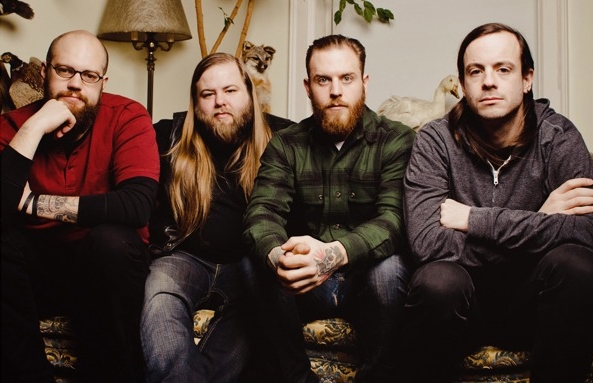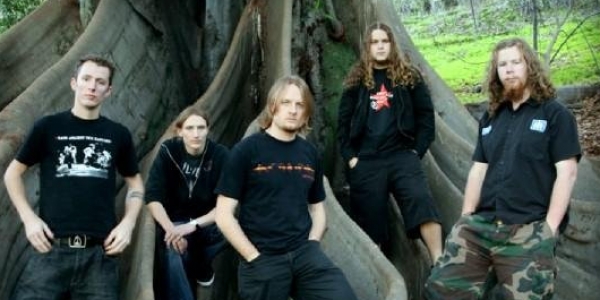“It’s definitely one of those things that changes over the years,” he laughs. “Most bands will say this too, but when you first start heavy touring, you’ll lose your voice a lot. It’s really tough, and you need to figure out the tricks to get you through. After a certain point, your voice adapts. You get better at it; you start singing from your chest rather than screaming your brain out. Learning your craft. Now that we’ve been touring for ten years, it’s become second nature in a lot of ways. You learn how to take it seriously, figure out what not to do. Don’t eat three hours before a show so you’re not burping through it, all those little things that you learn from mistakes. Oh, and always, always do karaoke. That’s a big one.”
Given the timbre of Cancer Bats’ sound, it was difficult not to imagine Cormier as an angry (likely horned), uninterested monster of a man prior to our conversation. Yet few artists have proved so open and entertaining; the kind of musician you could take home to meet your mother. At least part of his character was formed back in the ‘90s, where the discovery of hardcore music was born not from rebellion or dissatisfaction, but pure excitement.
“I grew up playing in punk bands, skateboarding around, and slowly we’d all put on these DIY punk shows with all your friends. But after a while we started noticing all of these hardcore bands were starting to turn up, coming in from the city to play the suburbs. I remember seeing this band called Countdown to Oblivion. They had two singers, wore balaclavas, and they were going crazy, up there, screaming, every song was one minute long, and we saw them and that was it. Our punk band broke up, we realised everything we were doing was bullshit in comparison to this, and we wanted to be more like them. The hardcore community was more of a rush, as a young kid playing this intense, fast music, and that was it. All of us were addicted.”
It’s an addiction that hasn’t faded with age. Five albums down, and with live shows that threaten to spontaneously combust, Cormier has clearly found his brand. Perhaps the strongest secret to the band’s success, though, is keeping songs short and to the point. After all, you don’t want anyone to die out there (or on-stage, for that matter).
“I feel like the shorter the song the better when you’re playing in a bar, when people are partying,” he says. “We’ve always got a lot of cardio in them, so we can’t keep playing really fast for that long and still have people in the circle pit for more than a minute.” He laughs. “We’ve got to throw in a breakdown so they can have a breather. I know how out of shape I am, so we try and pass that across.”
BY ADAM NORRIS

